Transgender trailblazer leads in capital
Nayyab brings ‘chilli’ revolution to Islamabad, vies for two constituencies
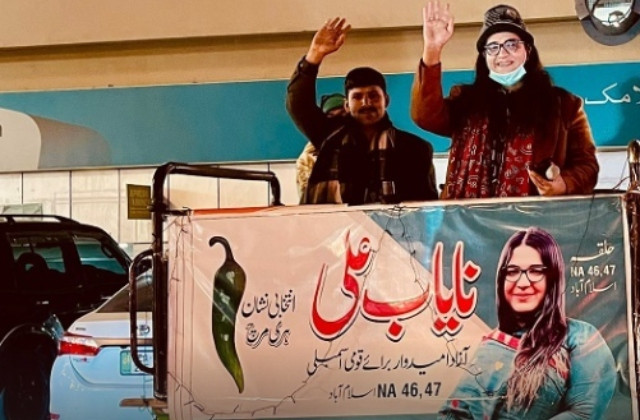
In the otherwise calm and somewhat dull election campaign mode in the capital, a transgender candidate vying for two constituencies in Islamabad briefly stirred the public’s poll emotions at Aabpara Market on Sunday evening when a vehicle blaring a catchy Punjabi election anthem brought dancing vibes to the constituents.
Armed with a ‘green chilli’ as her electoral symbol and a Punjabi campaign anthem reminiscent of Noor Jehan's robust Punjabi song, Nayyab Ali’s campaign has added a much-needed flavourful twist - or a 'Nayyab touch' – to the election drive.
A master's degree holder in international relations and policy development, the transgender trailblazer is contesting for seats 46 and 47 in the upcoming general election scheduled for February 8.
At a time when the candidates in the capital are mostly relying on banners, posters or stickers pasted on vehicles’ windows and back screens along with occasional corner meetings and spreading the word via WhatsApp groups, Nayyab has opted for a dynamic approach, combining door-to-door canvassing with music blaring from speakers mounted on a Suzuki cruising through the city to broadcast her message.
While the overall experience has been positive, Nayyab faces challenges amid the prevailing transphobic atmosphere, intensified by recent legislation from certain political parties. The transgender community – or the ‘hijra’ or ‘khwaja sira’ – often subject to discrimination and ridicule, battles societal perceptions while attempting to participate in the political process.
Read: Unregistered, unheard: elections and transgender exclusion
“It’s a bit difficult to contest when your security is under question,” she said, adding that the constituents have responded differently during the door-to-door campaign.
While some pledged support due to her outreach efforts, others still clung to outdated stereotypes, viewing transgender people as beggars or dancers.
Political extremism, she said, was another factor, as people do not even listen if you are not supporting the party of their choice, let alone standing against it.
Despite the prevailing stigmas and conservative mindset, Nayab hoped that with Islamabad's impressive 88% literacy rate, the residents of the capital would grasp that she represents not only the transgender community but the entire constituency.
Key components of her manifesto include championing human rights, alleviating poverty, establishing the rule of law, addressing issues in 'katchi abadis' around the capital, abolishing the 500% property tax hike, setting up health centres, creating youth hostels, initiating reforms in CDA, MCI, and city administration, implementing a policy guide to eliminate sit-ins, and advocating for the allocation of reserved seats for women, differently-abled, and transgender individuals in Islamabad.Reflecting on the political landscape, Nayyab believed people are disillusioned with traditional parties and are seeking change.
She said the masses were indifferent to whether Imran Khan was in jail, Nawaz Sharif was in exile, or Bhutto was still alive. Their primary concern, she stressed, revolved around having food on their table and ensuring fundamental rights.“People are looking for change now.”
Her previous stint helped her to come up with different tactics including campaign songs to convince people, she said.
Nayab revealed that she deliberately chose 'green chilli' as her electoral symbol because it's the most basic household item that used to come free with groceries. However, due to inflation caused by the incumbent and previous rulers, it is no longer provided without cost.
Responding to the question of why she was contesting from two constituencies, Nayab explained that she has been actively involved in the community for several years. However, due to the delimitation exercise, certain areas fell within NA-46 and others within NA-47, forcing her to run in both constituencies.
Among other things, she even suggested that “Islamabad should have its own government just like Delhi”.
Nayab feels that becoming a part of the political system is crucial as only then can one effectively advocate for the rights, saying “There is no other way to get your rights.”On the possible outcome, she said that democracy is not about winning or losing but about choices people make.


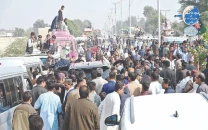


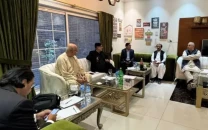
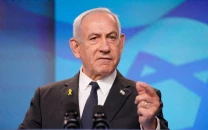


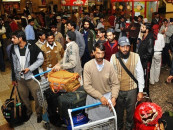









COMMENTS
Comments are moderated and generally will be posted if they are on-topic and not abusive.
For more information, please see our Comments FAQ